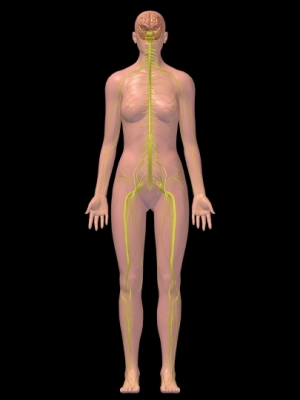Autism
Description of autism
Autism is a spectrum of complex brain disorders resulting in social, behavioral and language problems. Other conditions, that are part of the spectrum include Syndrome Asperger's and pervasive developmental disorder. On average, the autism spectrum is subject to some 1 from 100 children 3-17 years.
Causes of Autism
Autism is a developmental disorder of the nervous system . It means, that the causes of autism are problems in the brain. Scientists are looking for answers to questions, which is the cause of these problems. Studies show next:
- Autism, primarily, associated with the transfer of the defective gene from generation to generation;
- Problems during pregnancy or delivery may interfere with normal brain development;
- The cause of autism in some cases may be environmental factors.
Risk factors
Factors, which increase the risk of autism:
- Paul: male (Boys are four times more prone to autism than girls);
- Family history: brothers and sisters of a child with autism have 3% -7% likely to get sick;
- Several other diseases, associated with autism, although their effect is not well understood:
- Nejrofiʙromatoz;
- Tuberous sclerosis;
- The syndrome of fragile X chromosome;
- Phenylketonuria;
- Moebius Syndrome;
- Epilepsy;
- Herpes encephalitis;
- Cytomegalovirus;
- Problems during pregnancy or childbirth;
- Rubella during pregnancy (the risk for a child).

Symptoms of Autism
Autism usually first appears in early childhood (2-6 years).The severity of symptoms varies over a wide range of. Behavior and abilities may differ from day to day; symptoms may decrease as the child grows. Children with autism may exhibit a combination of abnormal behaviors.
Symptoms include:
- Avoiding social contact;
- Problems with speech;
- Improper use of the word, changing the meaning of words;
- Frequent gesturing;
- Avoiding eye contact;
- Problems with nonverbal communication;
- Lack of interest in normal activities for that age;
- Spending time alone;
- Lack of interest in games;
- Hypersensitivity to sound, smell, taste, mind, prikosnoveniyam;
- An abnormal response to stimulation;
- Lack of response to a joke;
- Hyperactivity or excessive passivity;
- Tantrums;
- Excessive commitment;
- Aggression;
- Self-harm (self-mutilation);
- Constant repetition of similar movements, such as rocking or hand claps;
- Resistance to change in life;
- Lack of understanding of other people, their feelings and needs;
- The presence of constipation and meticulously to food.
Some people with autism have other diseases, and, including:
- Convulsions;
- Intellectual disability;
- Genetic disorders, such as the fragile X chromosome syndrome.
Diagnosis of autism
Doctor, who specializes in autism, observing the child's behavior, social contacts, and the ability to communicate. He estimates the mental and social development, and asks parents about the child's behavior. Some doctors are asked, parents did video the child's behavior at home.
Tests may include:
- Neuropsychological tests;
- Questionnaires and observation charts;
- Checking intelligence.
Medical tests, to rule out other diseases, that cause similar symptoms, may include:
- Blood tests;
- Urine;
- DNA analysis;
- Electroencephalogram (EEG) – test, which records brain activity, measuring the electrical current, passing through the brain.
Treatment of Autism
There is no cure for autism. The severity of symptoms may decrease over the years, but the disease lasts a lifetime. Children with autism and their families can benefit from early intervention. For Example, children 18-30 months, who participated in rehabilitation programs, showed an improvement in IQ, language and adaptive behavior.
Children, autistic, They respond well structured, predictable schedule. With its help, many children with autism can learn to cope with their disabilities. Most people with autism need help and support throughout their lives. Others may work and live independently, when they grow up.
Events, aimed at helping children with autism, They include:
Special education
Programs, designed to meet the special needs of the child to improve his chances of training. Children with autism may have trouble solving problems, concentration, and anxiety. Training programs should include the child's interests. Some children learn better in small groups. Others may attend regular classes with special support. Vocational training can help prepare young people for work.
Therapy
Speech, Physical and occupational therapy may improve the activity of the patient. Children with autism need help in the development of social skills. Psychiatrists can also help a family cope with caring for a child with autism. Consultants help parents learn how to manage the patient's behavior.
Medication
Although drugs for the treatment of autism does not exist, Some drugs are used, to control the symptoms of the disease. Aripiprazole and risperidone are the only drugs currently, approved for the treatment of Conduct, associated with autism. Medications for the treatment of anxiety and depression can also help treat obsessive and aggressive behavior.
Other therapies
There are other treatments, such, as changes in diet and alternative therapies. You must talk to your doctor, to see, whether their application is useful for a child.
Preventing Autism
There are no guidelines for, to prevent autism, because the cause of the alarm is unknown. Scientists are looking for its root causes.
